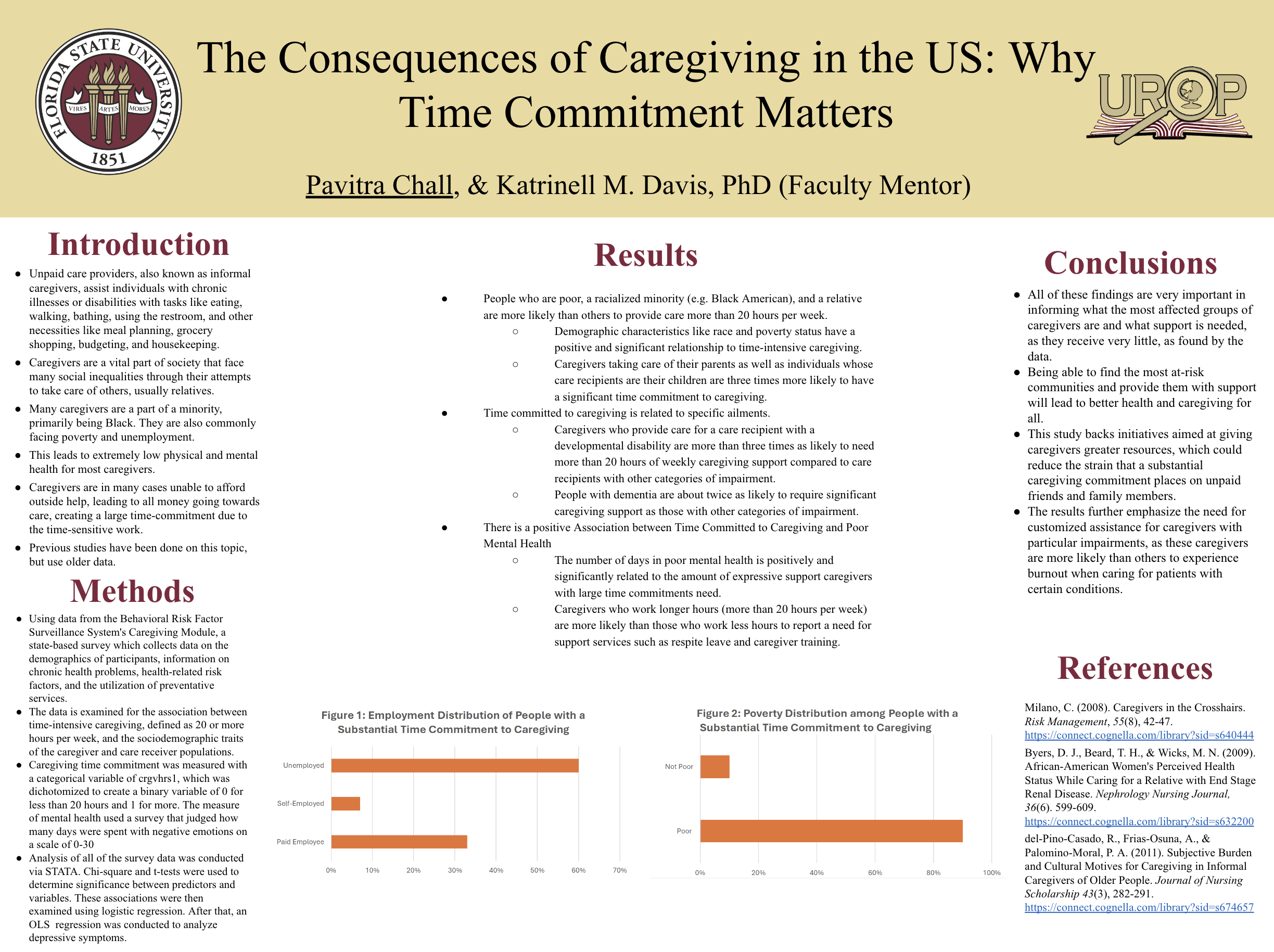Research Symposium
24th annual Undergraduate Research Symposium, April 3, 2024
Pavitra Chall Poster Session 4: 2:45 pm - 3:45 pm /418

BIO
Hello, my name is Pavitra Chall, but most people call me Pavi. I am a freshman Psychology major at Florida State University. I have long had an interest in human behavior and people, which is why I joined UROP. I currently plan on using this research experience to become a therapist. Aside from research, I love reading, music, and gaming.
The Consequences of Caregiving in the US: Why Time Commitment Matters
Authors: Pavitra Chall, Katrinell M. DavisStudent Major: Psychology
Mentor: Katrinell M. Davis
Mentor's Department: Sociology Mentor's College: Florida State University Co-Presenters:
Abstract
Unpaid care providers, also known as informal caregivers, assist individuals with chronic illnesses or disabilities with tasks like eating, walking, bathing, using the restroom, and other necessities like meal planning, grocery shopping, budgeting, and housekeeping. Past studies on informal caregivers, who are frequently family members, have looked at this subgroup's demographics and how problems like poverty and health difficulties impact them. This study examines how the connection between time spent providing care and self-reported health indicators varies among sociodemographic groups with different access to resources and social power, building on the findings of earlier studies. Using data from the Behavioral Risk Factor Surveillance System with a sample of 33,606 caregivers, the association between time-intensive caregiving, defined as 20 or more hours per week, and the sociodemographic traits of the caregiver and care receiver populations in this case study is examined. Research demonstrates a strong correlation between time-intensive care and being a Black and poor caregiver. It also demonstrates the likelihood that these caregivers may struggle to get the support they need for their care. Results show that they struggle with mental health concerns for a longer period each month. This study backs initiatives aimed at giving caregivers greater resources, which could reduce the strain that a substantial caregiving commitment places on unpaid friends and family members. The results further emphasize the need for customized assistance for caregivers with particular impairments, as these caregivers are more likely than others to experience burnout when caring for patients with certain conditions.
Keywords: caregivers, sociology, inequality


